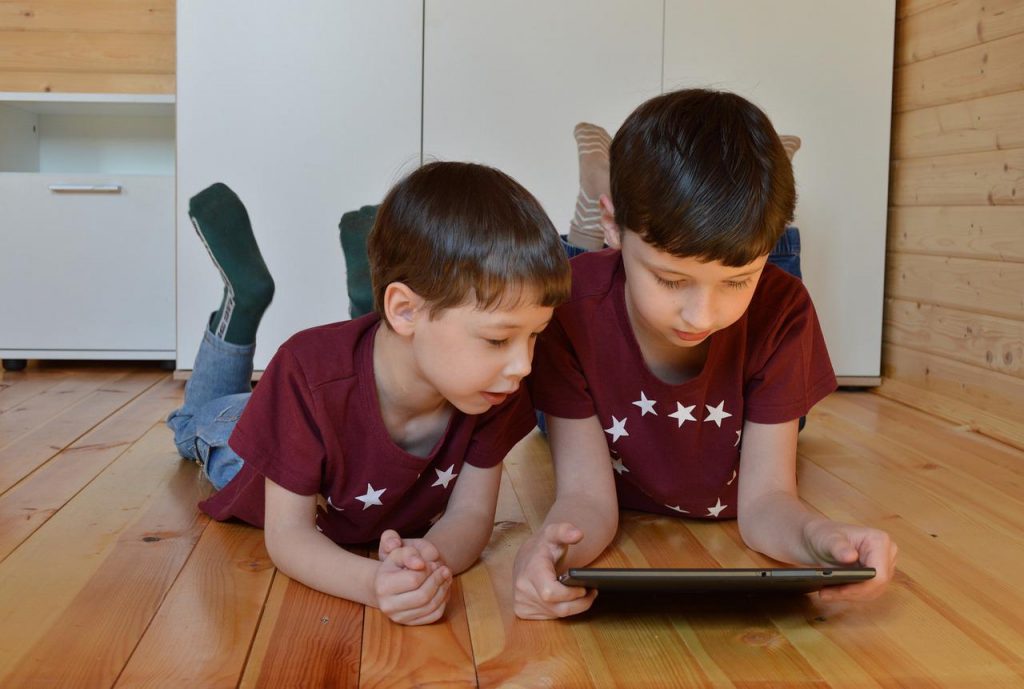Educational Apps Purposely Violating Children’s Rights?
An advocacy group exposed a slew of educational apps for overtly violating the personal privacy of children.
This article is more than 2 years old

It’s common knowledge that companies and advertisers siphon user data to create profiles that lead to monetary gain. In recent years this overt violation of personal privacy has been called into question. Social media entities like Facebook have been put in the hot seat by lawmakers and regulators in an attempt to rein in their privacy-busting tactics. A particular focus, for good reason, has been put on protecting the privacy of kids. This is especially true for kids under the age of 13. Strict laws have been put into place meant to restrict the ability of companies looking to acquire and use children’s data. Unfortunately, though, lawmakers and regulators are fighting an uphill battle. CNN reported that a recent investigation revealed that well over 150 different educational apps were found to be collecting and distributing data they extrapolated from child users.
The investigation was conducted by the international advocacy group Human Rights Watch. The research took place between March 2021 and August 2021 and was prompted by the pandemic-fueled increase in remote learning worldwide. When schools globally shifted to remote models the institutions began to rely heavily on learning peripherals like educational apps in order to facilitate instruction. The advocacy group, in looking out for the best interests of children all over the world, decided to see if the educational apps being used were upholding the privacy standards imposed upon them. Sadly, in many instances, the apps were failing to do so.
Human Rights Watch’s findings revealed that 89% or 145 out of the 164 educational apps they examined failed to sufficiently protect children’s privacy. The report detailed that in the vast majority of cases not only were these apps both harvesting data and monitoring kids, but they were doing so unbeknownst to the kids, parents, or teachers.
The unlawful acts performed by the companies behind the development of those educational apps had harrowing effects. The research identified that the collected data was sold to both AdTEch and EdTech advertising agencies. Children’s data was then used by those agencies to deliver targeted ads to kids on their devices. That is overt and direct exploitation of children.
Perhaps even more disturbing than the fact the companies behind the educational apps were knowingly exploiting children is that the investigation also revealed that in all but one instance governments were keenly aware of what was going on and actually condoned the practice. Why? Because in exchange for being able to harvest a children’s data they were provided subsidies that made purchasing the software cheaper for schools. “We already knew technologies were being abused and putting children at risk, but this report is really important because it shows the scale of harm and how the same mistake is being made by educators and governments around the world,” Albert Fox Cahn, who heads up the Surveillance Technology Oversight Project told CNN.
What Human Rights Watch exposed about these educational apps is disturbing on numerous levels. However, what is most concerning is the lasting effect that these ads could have on a child’s development. Adults already have a hard enough time resisting the advertising ploys, and in some cases overt misinformation, that targeted ads elicit. Consider the effect that these ads and marketing tactics could have on a still-developing brain.
In the United States, the Federal Trade Commission is doing its best to institute more stringent policies in an attempt to safeguard kids. However, in reality, it like won’t be enough. Because of how quickly technology advanced in the last decade and the pace at which social media platforms and ad tracking erupted there are lackluster legalities in place at best. Unfortunately for kids, this is a battle that will long be waged far into the foreseeable future.





